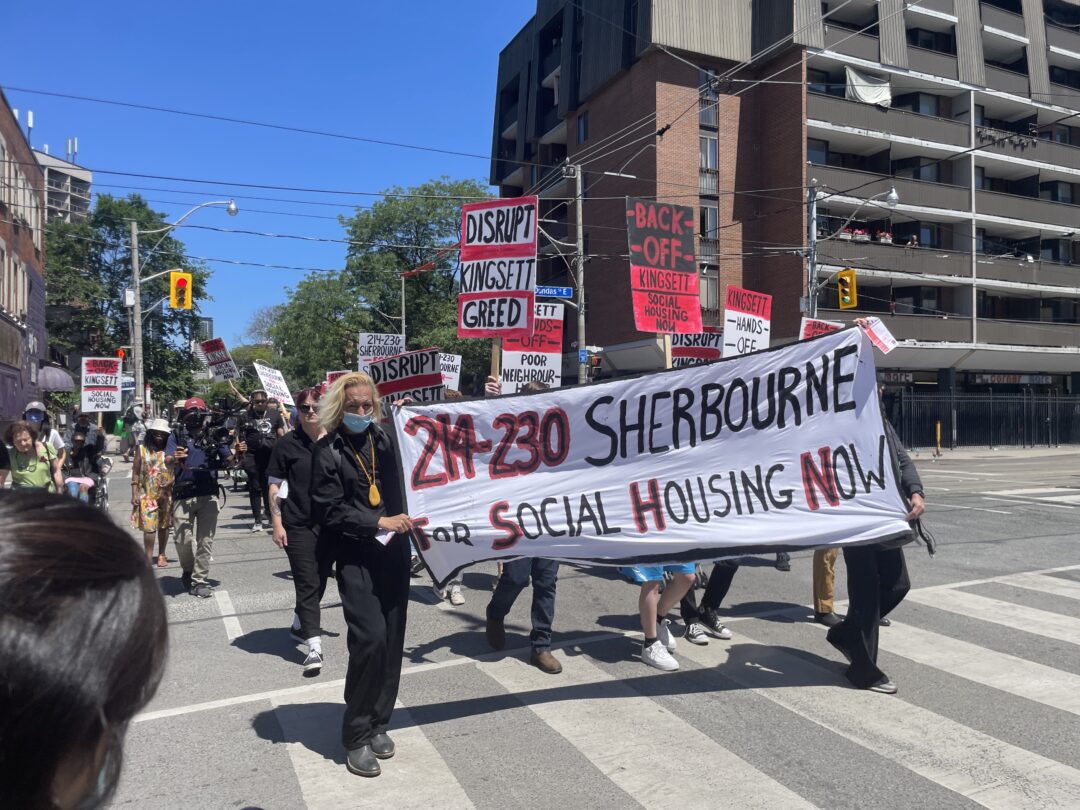Krishika Jethani –
“When children come up to me and say it’s easier for them to get a gun than a job, that’s an indictment against us as a city,” said Louis March, who passed away on July 20.
In the week after his death, Toronto City Council passed a motion to create at least one Youth Space or Youth Hub in each of the City’s 31 Neighbourhood Improvement Areas. However, youth supporters call for more focus on youth unemployment and other solutions.
Youth lacking “meaningful and gainful employment” feel hopeless, said Serena Nudel, community programs director at the Neighbourhood Group Community Service, an agency serving more than 40,000 low-income families in 30 locations across Toronto.
Nudel said March was a dear mentor and a huge figure in youth advocacy. A Black activist and community organizer, March founded the Zero Gun Violence Movement.
SafeTO, the city’s ten-year plan to advance safety and well-being in communities, is an “overarching” strategy with multiple kinds of interventions, said Scott McKean, SafeTO’s associate director.
Violence Prevention Toronto brings school boards, housing, and other levels of government and community providers together to work on violence with a public health approach.
This multi-sector approach leads to understanding the “places that are most impacted by violence, the people that are disproportionately impacted by violence, and their proximity or their connection to levels of risk,” said McKean. The city leads certain elements, but invests in the community to do the work.
Different programs, such as Toronto Community Service and Towards Peace, are coordinated in the Violence Prevention Toronto office. “Instead of having stand-alone programs, we have everything feeding into one place so that we can better evaluate the effectiveness of our programs and services,” he said.
Kowmitha Satkunarajan, policy and advocacy director at the Toronto Youth Cabinet, the city’s official youth advocacy body, said the main goal should be to ensure the city is “properly and adequately” investing in youth. In addition to providing youth hubs within communities and focusing on gun violence, “the need is for more employment opportunities.”
“By providing these systemic and structural incentives and opportunities, youth will be dropped away from these violent activities and that’s where we’ll see the decrease in violence activity across the city,” she said.
McKean referred to the Toronto Community Service, a 24/7 program policing mental health crisis run by city staff. The city also invested in community partners to help execute the program.
SafeTO is also expanding the city’s current Crisis Response Program to seven days a week to respond to violent traumatic incidents and facilitate healing.
“Staff are geographically assigned across the city and are responsible for doing community development work, but also crisis response work when violence happens,” said McKean. They work with communities to heal and recover as well as with groups and coalitions to build safety networks and activities to reduce violence.
Despite that, Nudel said she’s “seeing cuts to youth-specific supports for youth unemployment that youth really need, particularly those that are furthest from employment that they really need, in order to be able to access a job.”
Nudel adds youth are lacking opportunities for mentorships which leads to feeling “hopeless” and “excluded.”
McKean cited a city program called Toronto Youth Partnerships for Employment to respond to individuals disconnected from employment opportunities and at serious risk of violence. “If they’re in need of employment, it provides specialized case management for young people who are at higher levels of risk for involvement in serious violence and crime,” he said.
While praising the Toronto Youth Partnerships for Employment program, Nudel says employment is still an important factor in youth violence. Young people need increased opportunities to “access meaningful and gainful employment,”
“We’re trying to build a multi-sector approach so that the city, along with community partners, like school boards, housing, grassroots, resident groups and agencies can work collaboratively on these issues together to try to solve and reduce violence,” McKean said.
McKean emphasized another program, Towards Peace, in which city staff work with community-funded agencies and grassroot organizations to de-escalate potential conflicts.



